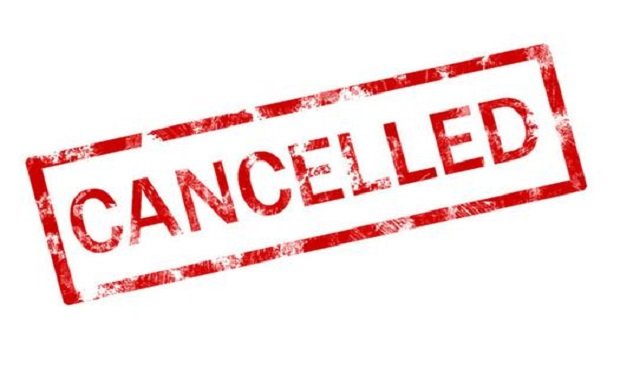It’s Not too Early to Start Planning Your Future Event
After the past three months, predicting the future of large event planning is like walking on sand in high heels. You never know when the landscape might shift. There are ways to mitigate this uncertainty when planning an event. Some ideas include shifting your vision of the event design to include details that are easier to change as the event date nears while others relate to contracts and knowing lead times.
Understanding your insurance and contracts is one of the most important factors in mitigating loss and protecting your budget and I’ve included detailed information below to help you navigate some of the important details you should review with your legal representative.
Let’s start with the most obvious and easiest to do and go from there.
There are ways to mitigate this uncertainty when planning an event. Some ideas include shifting your vision of the event design to include details that are easier to change as the event date nears while others relate to contracts and knowing lead times.
Understanding your insurance and contracts is one of the most important factors in mitigating loss and protecting your budget and I’ve included detailed information below to help you navigate some of the important details you should review with your legal representative.
Let’s start with the most obvious and easiest to do and go from there.
Hire an Event Planner
That’s right. It might seem self-serving to list this first, but hiring someone trained to deal with the normal uncertainties of large events, is the easiest way to deal with an even more uncertain future event planning landscape. When you hire me, I’m not just taking the tasks off your plate, I’m taking much of the worry and stress that comes with planning a large event. Helping you navigate the uncertainty of planning a large event is what I’m trained to do.Consider Changes to Your Event Design
Think about the event you have envisioned and take a long hard look at details that might not work with future safety requirements. This might include how food is served, how guests are seated, how displays are set up, or how event halls are designed.Bake in Longer Lead Times
Renting venues and hiring caterers often have longer lead times than other aspects of organizing a large event. These lead times might be shorter at first until the industry is back in full swing, but with the permanent closure of many small businesses and venues, it is tough to predict one way or the other. Bake in longer lead times to ensure you are able to secure the venue, caterers, audiovisual crew, and other vendors your want for your event.Budget for the Financial Requirements of Contracts
Your contracts with vendors, entertainers, caterers, and venues may all be subject to cancellation clauses. Know what these are and understand what your responsibilities are if your event is canceled. If you paid an advance on the contract, you should know how much of that is at risk upon cancellation and how much might be covered by event insurance, if any.Know Your Contracts & Insurance Coverage
 After Covid-19, the events industry is adjusting so contract language and agreements you make with your hotel venue and other suppliers will definitely need to be updated. Let’s discuss liability and contract language. For more specific language or to update your own contracts, please see your attorney.
Below, I have highlighted the suggested updated contract language and liability.
After Covid-19, the events industry is adjusting so contract language and agreements you make with your hotel venue and other suppliers will definitely need to be updated. Let’s discuss liability and contract language. For more specific language or to update your own contracts, please see your attorney.
Below, I have highlighted the suggested updated contract language and liability.
- Update Force Majeure Clause: Force majeure is defined as unforeseeable circumstances that prevent someone from fulfilling a contract. Going forward, your force majeure clause has to be very specific. It needs to address the issues that you are going to declare as a force majeure. Include terms like disease or pandemic in your clause and definitely include Covid-19.
- Include a cutoff date: In your contract, determine how it will be decided when the force majeure will be declared. Include a date when the group will determine that it is not practical or advisable to move forward.
- Include a Frustration of purpose clause: A contract will terminate automatically when a frustrating event occurs, i.e., one which is: (1) unexpected; (2) beyond the parties’ control; and (3) makes performance impossible or radically different from that which the parties contemplated at the time of entering into the contract. For this to be considered, you must include the purpose(s) of you event in your contract. The frustrating event must “significantly change the nature of the outstanding contractual rights or obligations.”
- Are you liable if someone gets sick at your event?
- Include a waiver: Many companies and organizers are requiring attendees and guests to sign a waiver prior to entering a venue. However, in order for the waiver to be valid, it must be given to people in advance and be easy to read and written very clearly in plain English. If given to the attendee at the event, it could be argued that an insufficient amount of time was given to fully read and understand the waiver which may be voided by a judge.
- Create a separate Covid-19 clause with your suppliers: To prevent lawsuits, venues have protocols they are putting in place for health and safety. In your supplier contract, ensure that it agrees to comply with health protocols and industry practices so if someone gets sick and it’s proven that the supplier didn’t meet the standard of care then the host/group is indemnified of lawsuits.
- Increase space requirements: With an increase of new safety measures, event hosts may need more space to allow for social distancing so you and your budget have to be flexible if the venue requires more space for your event attendees.

